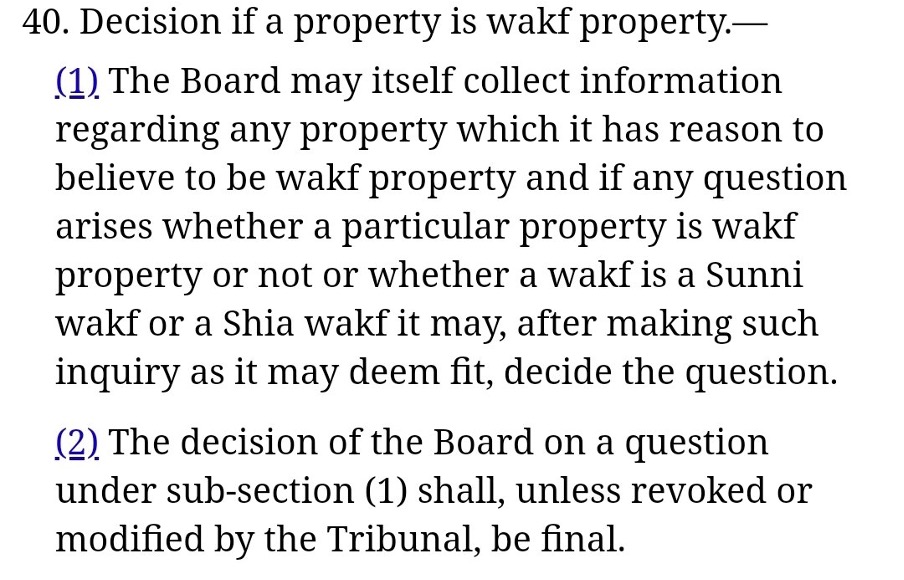A waqf is an inalienable charitable endowment under Islamic law. It typically involves donating a building, plot of land or other assets for Muslim religious or charitable purposes with no intention of reclaiming the assets. Any person believing in Islam can dedicate or give his or her property in the name of God for religious and charitable purposes, such property is Waqf property. This is an irrevocable and permanent dedication /transfer. A non-Muslim cannot transfer property as Waqf unless he or she believes in Islam.
While there was the Waqf Act 1954, Waqfs in India are now governed by the Act of 1995. A survey commissioner under the Act lists all properties declared as Waqf by making local investigation, summoning witnesses and requisitioning public documents.
A Waqf Board is a juristic person with power to acquire and hold property. Each state has a Waqf Board headed by and with Muslim personal on it - recognised scholars of Islamic theology.
Section 40 Waqf Board Act mentions that any property in India can be claimed as Waqf Board Property. And under Section 52: The Waqf Board can, after the inquiry, ask the local Collector to deliver the possession of the property.
While most of them are Sunni Waqf Boards, the country does have some Shia Boards too. For any dispute with the Waqf Board, one must appeal to the Waqf Tribunal. The Wakf Act was amended in 2013, making it mandatory for States to constitute a three member Tribunal which would include one person knowing Muslim Law. There are huge and multiple Waqf properties in India, thus for e.g. the Jama Masjid in Delhi, the two Imambaras in Lucknow are Waqf properties.
Incidentally, the board also takes 7% of the income from waqf property – 1% for the Central Waqf Council, and 6% for itself.
The issue really also is - no civil court has any jurisdiction. So an aggrieved person would have to approach a High Court. And how many would have the wherewithal to do so is a *big* question. And would he/she consider the effort, money and time worth it?

No comments:
Post a Comment